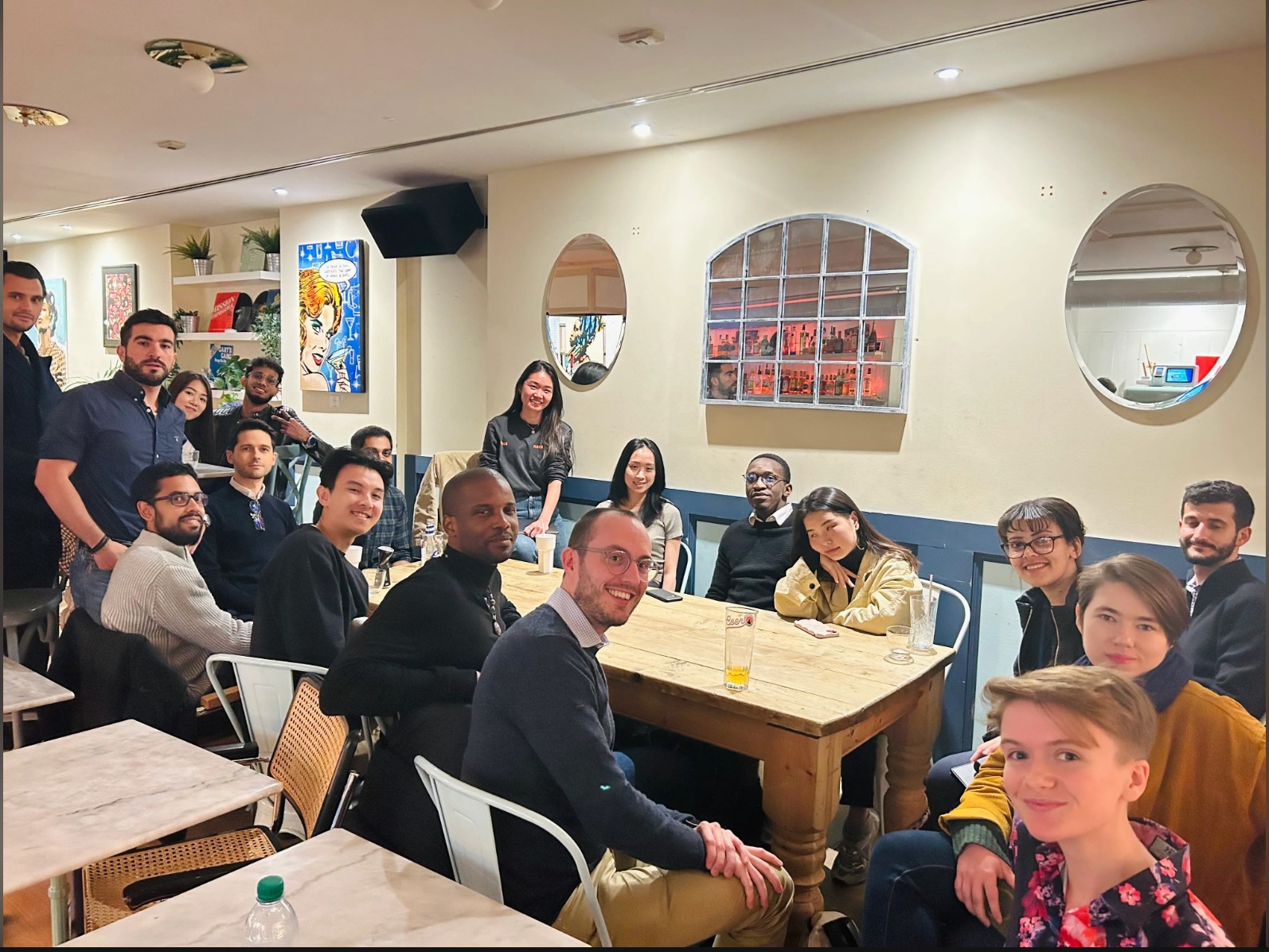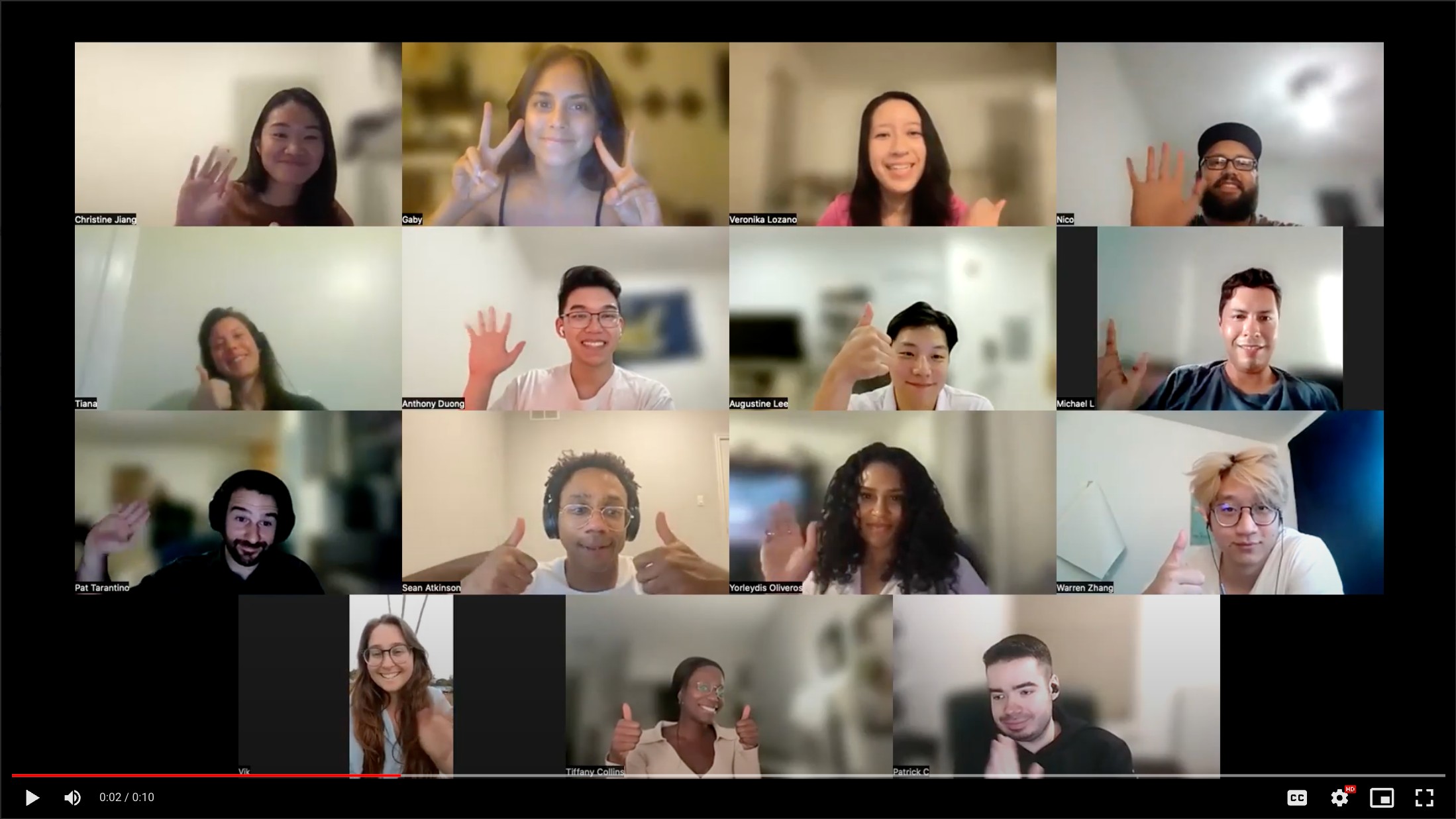We recently connected with Christine Jiang and have shared our conversation below.
Christine, looking forward to hearing all of your stories today. Let’s start with the story of your mission. What should we know?
The idea of founding my own data analytics bootcamp didn’t start as a business idea, but came from a relationship years ago in which I saw how learning technical skills could dramatically change one’s life. From 2017-2021, I was close to someone who had come from one of the lowest ends of the socioeconomic spectrum in the U.S., and observed as he transformed his life by teaching himself how to code. His path was far from straightforward, but by learning how to code, he ultimately unlocked an entirely new set of opportunities for himself, including a level of financial stability that would have been previously unreachable and is unfathomable to most people from his upbringing. This experience deeply inspired me and planted a seed – perhaps one day I’d teach people these skills so that they could also better their lives and “even out” the playing field that is corporate America. Fast forward a few years – by early 2023, I’d now worked in data analytics for 7 years – and saw the massive wave of layoffs happening across all industries in America. I started hosting free workshops to help these people learn about getting a job in data analytics, and as attendance for these workshops grew to the hundreds, coupled with that experience from years ago, I realized there was no better time to start equipping people with these technical skills than now. So three months after starting these free workshops, I launched the first 20-person cohort of the Analytics Accelerator from a little apartment in Brooklyn.


As always, we appreciate you sharing your insights and we’ve got a few more questions for you, but before we get to all of that can you take a minute to introduce yourself and give our readers some of your back background and context?
My start in corporate America feels quite commonplace – I went to school at UPenn and then worked in consulting for a few years, transitioning into data analytics in 2017 and working for a few startups in NYC. Three jobs after college, however, I was craving more opportunities in life to express creative interests in photography and decided to leave my full-time data job to explore other options. To sustain living in NYC (it ain’t cheap!) I took on a part-time teaching job at a popular data analytics bootcamp, and was surprised to find that I absolutely loved teaching and connecting to other people through teaching a skill.
The problem with this teaching job was that the curriculum – though intended to help people get a job in data – was a far cry from being rigorous enough to actually help people land that job. I started seeing a pattern in which smart, qualified, motivated people were having trouble transitioning into analytics because of a lack of hands-on education that is based on real-world questions. Countless resources teach you facts, but there are very few resources that teach you how to think – and as the bar for data analytics jobs has gotten higher and higher, so has the barrier to entry for people who don’t come from your typical tech backgrounds. The solution to this, in my opinion, is in education that is rooted in these real-world questions – answering real business questions, with real data, in a supportive environment where you collaborate with people as a real team. And from what I’ve seen, no bootcamp, no YouTube playlist, and no book currently does this in a way that balance rigorous training with accessibility.
When I launched the first cohort of the Analytics Accelerator last year, I wasn’t entirely sure how my 20 students would fare against the job market. Ultimately over 70% of students (who were applying to jobs) landed their first full-time analytics-related role within 6 months of the class ending, and many of them cited the program as being a make-or-break experience in this new chapter of their lives. I’m proud of this. Many of these students had once been at a tipping point of “giving up” their aspirations of working in tech before they found this program. I’m fulfilled knowing that this experience I’m creating through unique and standout projects, a team environment, direct mentorship, and a diverse and dynamic community – that it’s working, and it’s making a difference.

What’s a lesson you had to unlearn and what’s the backstory?
Before starting the Analytics Accelerator in 2023, I’d always thought to myself that I would do something like this in my late 30s (I’m 30 now), once I had X, Y, and Z – more of a professional network, an audience of some sort, maybe funding, more wisdom – whatever people say you should have before starting a business. But ultimately I needed none of those things – I just needed to provide value to the people I wanted to work with (in this case, motivated people with a few years of work experience who were having trouble breaking into a career in data) and from there I naturally found my first customers, which then became my first 20-person cohort. That experience of building my first class, seeing the confidence of my students grow, and then celebrating with them once they got their jobs in one of the most difficult job markets I’ve seen – it changed my perspective on thinking that you need connections, you need a business background, you need all these things in order to start a profitable business. That’s not true. You do need to know what you can bring to the world and who you want to help, then you go out and help those people, and set up whatever operations need to be had around that – not the other way around.

What do you think helped you build your reputation within your market?
While I wouldn’t necessarily say I yet have a “reputation” within the market – the Analytics Accelerator is just 2 cohorts (aka 8 months) old – I’ll share some thoughts on how I built trust with my initial group of workshop audiences, who subsequently became my first 45 students and clients. One of the most important things was that I offered a perspective that I believe stood out from what many other resources and competitors – other bootcamps, YouTube influencers, LinkedIn figures – were saying. While many of these resources offered generic advice on resumes, I did workshops on a resume framework I created that had insights that come from my unique experience as a hiring manager. Instead of teaching coding in SQL, I showed how to use SQL to answer business questions that data analysts work on every day, and talked through my logic for why I wrote code a certain way, and what I loved and hated about coding on the job. And I sprinkled my personal experience into my workshops and classes – being transparent about the challenges of the work, the way the industry is moving, giving insights on what people don’t necessarily see when they’re just so focused on getting a job in general. I think it comes down to authenticity, sharing your experience in a way that is relatable but also real and honest – while motivating people to see that they can get to the other side.


Contact Info:
- Website: theanalyticsaccelerator.com
- Instagram: cjiaang
- Linkedin: https://www.linkedin.com/in/christine-jiang/
Image Credits
Images were taken by me!


